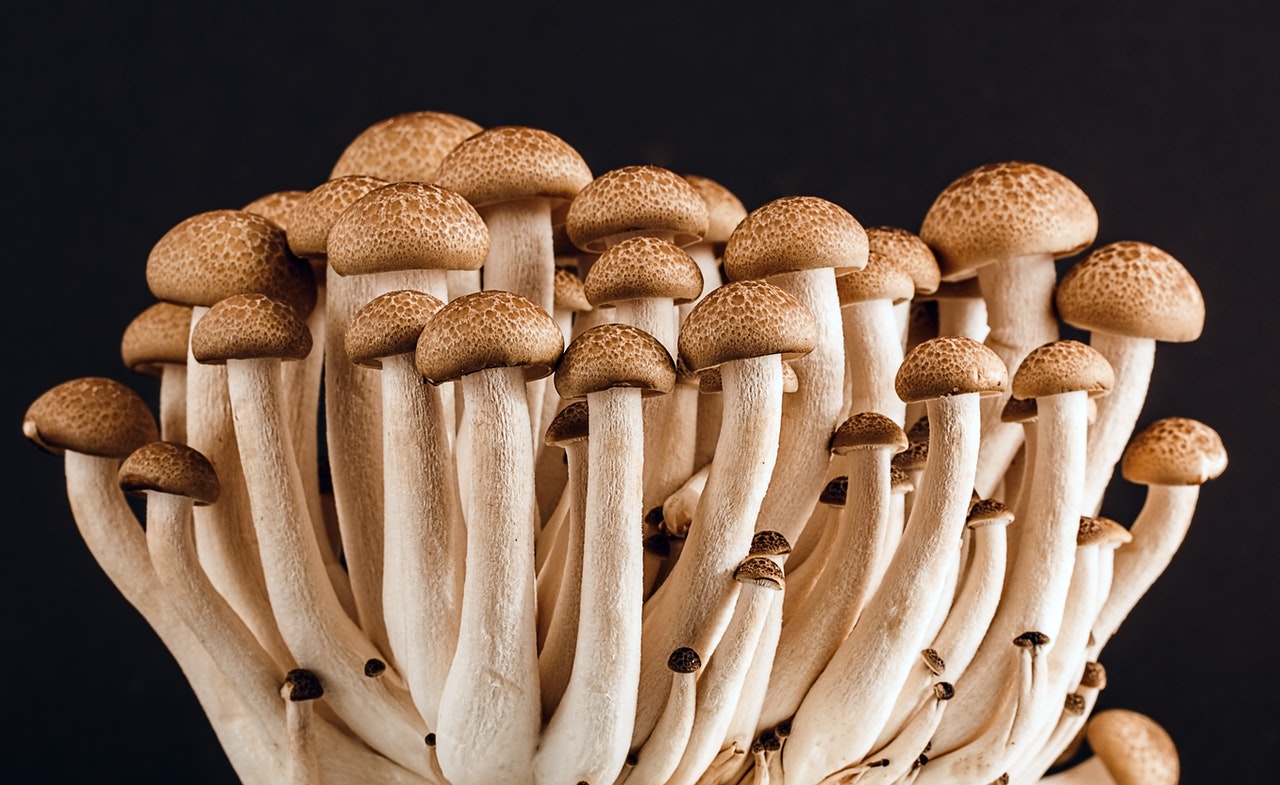The Stoned Ape hypothesis, put forward by ethnologist Terence McKenna, suggests that our ancestors’ use of psychedelic mushrooms led to improved cognitive abilities and contributed to the rapid development of modern humans. However, this theory is challenged by the fact that evolutionary changes typically take much longer than the timeframe proposed by McKenna, and the use of mushrooms ceased 12,000 years ago. While psychedelics have shown promise in treating psychiatric disorders, they do not necessarily elevate us above the animal kingdom or directly lead to human evolution. Instead, they may reveal our mental distortions and help us explore the mind’s peculiar world.

Terence McKenna, (1946–2000) was an American writer, philosopher, and ethnobotanist and the older brother of ethnopharmacologist DennisMcKenna, founder of the McKenna Academy of Natural Philosophy.
Powerful medicine
Psychedelic substances have an incredibly long but primarily ignored history. In that history, it has been noted that psychedelics are not a means of enjoyment or recreation, nor do they lead anyone towards “superhumanity”. They merely mean rediscovering our untapped potential. Undoubtedly, they are a kind of magic potion. After decades of being banned, they have come back in treating psychiatric disorders such as depression, anxiety, and addiction. Amazingly, psychedelics are likely to reveal more about us than traditional scientific research could ever have believed. They also contradict much of what we regard as cultural achievements. That is hardly surprising because the research has also shown that psychedelic experiences are linked to mystical experiences. In this respect, it seems that psychedelics confirm the existence of a human-inherited growth disorder. They do this by momentarily altering consciousness to match the state that existed a few million years before humanity emerged.
Psychedelics turn off our conscious mind with all its filtering assets and reveal the world as we should experience it. They show our defective nature, our actual mental illness hidden behind a civilised mask. From a neuroscience perspective, they suggest that the mechanism regulating the onset of adulthood is related to neurotransmitters. It would be outstanding if this faulty gene form that we have inherited could be located. From this perspective, it is clear that psychedelics are appropriate for adults and should not be offered to children or adolescents. The function of altering the consciousness is to stop the growing up process. If it happens too early, growing up may be disrupted.
Psychedelics show that the image given by the senses is neither unambiguous nor without problems. A child interprets what he sees. We have realised that humans have no direct perception but that all conscious perception is always the result of processing within the mind. We regard this as an indication of our quality and superiority. It is hard to see—and perhaps even harder to believe—that what we praise as higher humanity is merely an imagination.
Psychedelics or psychoactive substances like mescaline, LSD, psilocybin, and DMT are compounds that act on the serotonin receptors in the nervous system and shape sensory perceptions and thinking. They resemble serotonin, which is the brain’s neurotransmitter in chemical structure. At the level of experience, they produce the so-called altered state of consciousness, which is a curious deviation from the normal alert wakefulness. It can be achieved artificially (with psychoactive substances), or it can also occur spontaneously, i.e. without human intervention. However, spontaneous change usually occurs only once in a lifetime.
On the other hand, everyday consciousness is a state of awareness of ourselves and the world around us. Our consciousness consists of whatever we happen to be aware of at any given moment in time—thoughts, feelings, sensations, and perceptions of the outside world. We think consciousness is permanent because it is the basis of all our understanding and rational and voluntary actions. However, the state of consciousness may disappear, and we may lose control of our lives.
Attempts to solve the two most controversial issues, namely human consciousness and human emergence, have been made for centuries. However, one of the fantastic facts about the evolution of homo species is its history. In short, it is rude: extinction has befallen almost the entire family, only homo sapiens has been spared from it. Moreover, it makes one wonder if everything went just right. Therefore, it is appropriate to ask why we are the only ones alive and why evolution has favoured us more than other homo species? One might think that we cannot find the explanation in psychedelics or mysticism. However, there are good reasons to try it.

According to McKenna’s hypothesis, the crucial turning point occurred when apes found psychedelic fungi. However, there are a few reasons to believe that great apes were not interested in mushrooms. And the most profound reason is that mushrooms affect humans differently than apes. The reason is in the distorted human mind. Mushrooms and other psychoactive substances reveal this distortion. In other words, psychedelics reveal our essential mental difference from animals.
The starting point of the American ethnologist and author Terence McKenna (1946–2000) was the human brain, in the development of which he saw much unusual. He found science had no explanation for people’s leap-like mental development. But he had one, and it is now commonly referred to as the stoned ape hypothesis. According to it, hominids had found mushrooms containing psilocybin in the manure of the roaming cattle they followed 40–50,000 years ago. From that began, the rapid development of modern humans began. He argued that the fungal psilocybin had improved human visual alertness, sexual activity at higher doses, and hallucinatory conditions at even higher amounts. Fungi were also the explanation for the rapid development of the brain. Unfortunately, the scientific community did not take the idea of psychedelics seriously or thought of it as a trigger for human evolution. It still comes up every now and then, but it’s hard to say if it could contribute to the study of psychedelics.
I think McKenna’s attempt was good. At least he questioned the prevailing perceptions. But there is something wrong with it. First, it is difficult to explain how psychoactive substances would have permanently altered the human genome, even within McKenna’s proposed timeframe. Researchers estimate permanent changes in species to take up to a million years. Homo sapiens did not have that much time.
The timeframe issue was also a challenge for other theories of human development. There seems to be not enough time for almost any evolutionary change. And time is essentially related to the formation of the species. Species are artificial abstractions of adapted populations, yet they genuinely reflect their habitats. In contrast, modern humans are chameleon-like species, seeming to adapt everywhere but nowhere particularly. The longer people have been there, the more clearly habitats have begun to reflect people and not the other way around! I think, therefore, that the definition of a human species is lame.
Second, according to McKenna, the use of mushrooms ceased about 12,000 years ago and led to some decline in the species. So, if the change mushroom achieved was not permanent, the theory does not explain human emergence.
I also drew my attention to how McKenna considered psychedelics evolutionarily evolving human consciousness. While this may sound credible and appealing, I must disagree. The charm of psychedelics is not based on how they develop human consciousness or elevate us apart from the animal kingdom. Instead, they are used because they fix our mental distortion. I do not disagree with McKenna about the effects of psychedelics but only their interpretation.
It is a coincidence that certain plants and fungi contain serotonin-like compounds. It is also a mere coincidence that man has come to find them. Plants have no message or plan for humankind other than “to learn to live by nature”, and we are not any mystical messengers of the mushroom. It is only natural that we have similar substances as other natural beings. I do not underestimate these thoughts at all but consider them essential. But in terms of understanding our odd emergence, it is good to know where these thoughts come from. It is a fact that psychedelics alone do not help understand the mind’s peculiar world. It also requires a lot of fieldwork, questioning, and good luck.



